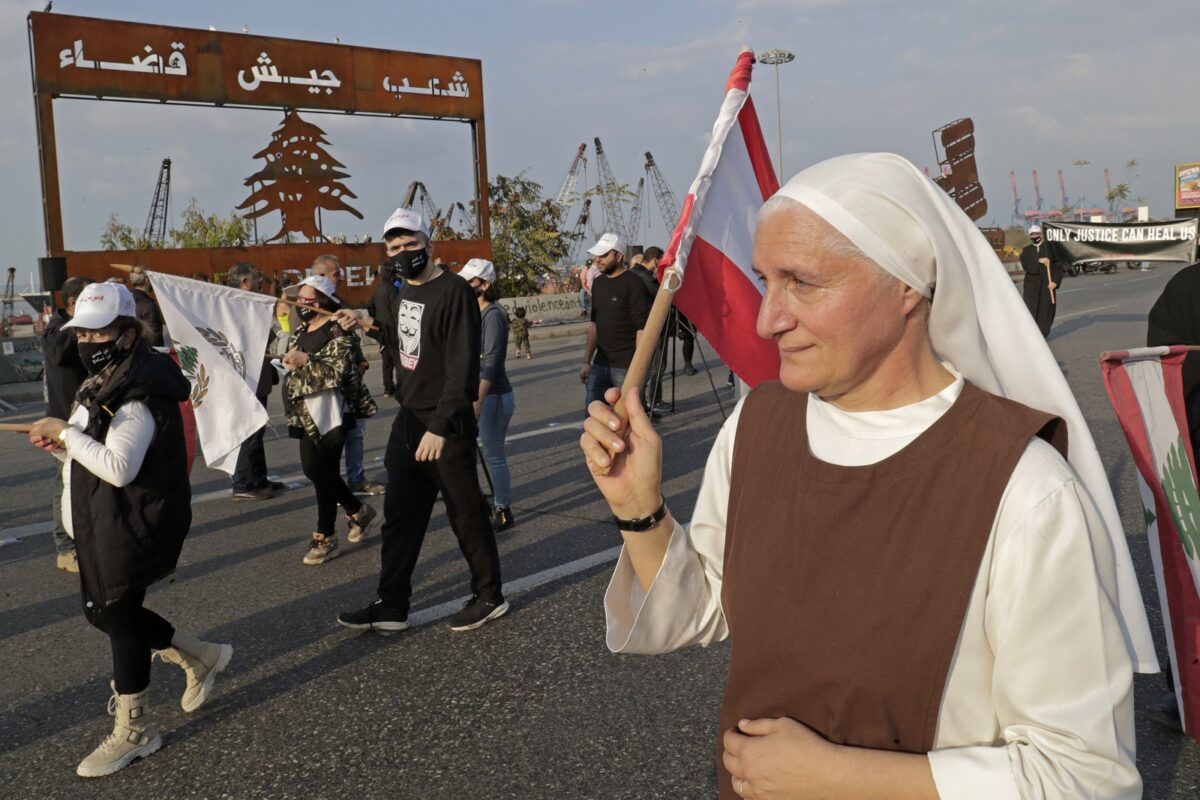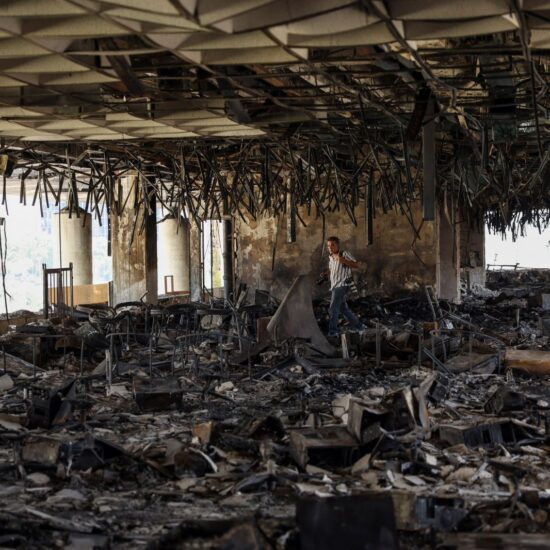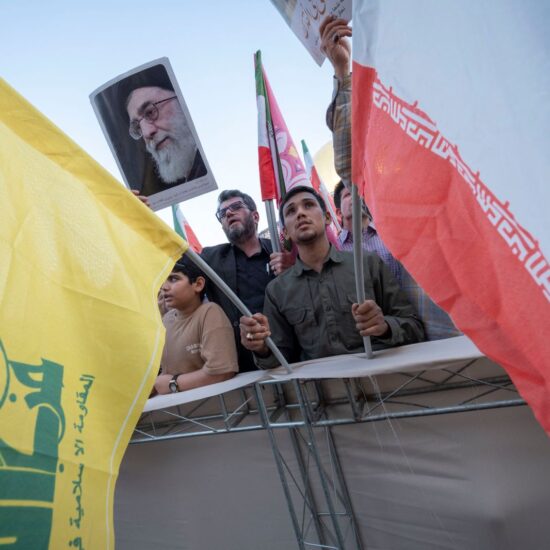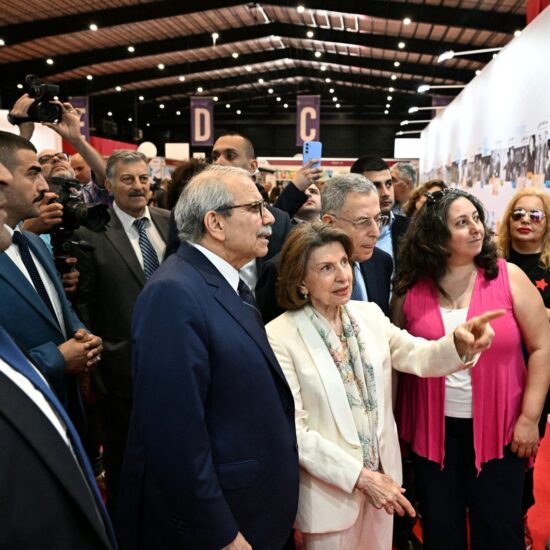
Exploring paths toward unity or division in Lebanon's critical choices ahead.
Lebanon’s political landscape is marred by sectarianism, deeply embedded in its political system; each major religious group holds specific, constitutionally guaranteed political power. This system, designed to maintain balance, often fuels competition rather than cooperation among the factions. The economic meltdown, exacerbated by political paralysis and corruption, has led to unprecedented levels of poverty and unemployment, further deepening public discontent. Amidst this, various narratives emerge, reflecting the complexity of Lebanese society.
These narratives are foundational to the understanding of what Lebanon could become. They encapsulate the fears, hopes, and enduring resilience of a population standing at a crossroads. The choices made in the near future will shape Lebanon’s identity, with profound implications for its people’s coexistence and broader regional stability. Today, two non-violent paths seem most viable: forging a pluralistic national identity or engaging in serious discussions about potentially partitioning the country. This article explores these options and the possible futures they could herald.
The Voices of Lebanon
Nostalgia for a Vibrant Past:
Amidst the current turmoil, many Lebanese yearn for the days when Beirut was known as the “Paris of the Middle East.” This sentiment is driven by memories of a time when Lebanon was a cultural and financial hub, bustling with tourists, renowned for its arts, and a center for banking and commerce that transcended regional conflicts.
Desire for Resistance:
For many Lebanese, the notion of resistance is a cornerstone of national identity, particularly in the context of historical and ongoing conflicts with Israel.
Rejection and Support for Iranian Influence:
Opinions on Iran’s involvement in Lebanese politics are sharply divided. Critics argue that Iran, through its support for Hezbollah, has too much influence over Lebanese affairs, undermining the country’s sovereignty and contributing to regional tensions. Supporters, however, see Iran’s role as crucial for backing Hezbollah in its resistance against Israel, providing Lebanon with strategic depth and defense capabilities it would otherwise lack.
Calls for Sovereignty and Defense:
There is significant debate over who should lead Lebanon’s defense strategy. Some argue that the Lebanese Army should be the sole protector of the country, advocating for strengthening state institutions to ensure national security and reduce reliance on non-state actors like Hezbollah. Conversely, supporters of Hezbollah view the group as an essential defense force, capable of providing security and resistance capabilities that the national army cannot.
Federalism vs. Partitioning:
Discussions about federalism and partitioning reflect deep-seated divisions within Lebanese society. Proponents of federalism suggest that a more decentralized government structure could allow various religious and ethnic groups to govern themselves more effectively, thereby reducing central power struggles. On the other hand, some voices call for partitioning as a way to resolve intractable differences, suggesting that creating separate states for different groups could be a solution to ongoing conflicts. However, this idea is controversial and raises concerns about the potential for increased conflict and economic fragmentation.
Hezbollah’s Controversial Role:
Hezbollah’s dual role as both a militant group and a political party is one of the most polarizing issues in Lebanon. To its supporters, Hezbollah is seen as a heroic resistance force that protects Lebanese interests against Israeli aggression. For its detractors, however, Hezbollah is a divisive and destabilizing force, with its armed presence and independent foreign policy aligning more with Iranian interests than those of the Lebanese state itself.
Building a Pluralistic National Identity
Definition and Importance:
A pluralistic national identity in Lebanon would mean developing a sense of nationhood that respects and integrates the diverse ethnic, religious, and cultural backgrounds of its citizens.
Benefits of Diversity and Inclusivity:
Embracing diversity can lead to more innovative problem-solving and a richer culture, enhancing social cohesion and stability. Inclusivity helps ensure that all groups feel represented and valued, which can reduce grievances and prevent conflicts.
Inclusive Governance:
Implementing electoral reforms that encourage representation beyond sectarian lines and developing policies that promote transparency and accountability in government.
Education Reforms:
Overhauling the educational curriculum to include the history and contributions of all of Lebanon’s communities, promoting languages and traditions from across the spectrum, and teaching skills that emphasize critical thinking and empathy.
Economic Equity:
Establishing fair economic policies that ensure equal opportunities for all, including equitable investment in all regions and support for marginalized communities, can help bridge economic divides and build a more unified national economy.
Dialogue about Potential Partitioning
Concept and Rationale:
Partitioning involves dividing the country into separate autonomous areas based on similar values or identities. This idea can be considered when internal conflict reaches a point where coexistence seems unmanageable under a unified government. The rationale behind partitioning often includes providing peace and stability by separating conflicting groups.
Risks and Challenges:
Partitioning might involve economic viability where states may struggle economically, especially if resources are unevenly distributed or if new borders disrupt traditional activities. Additionally, if not done thoughtfully, it can lead to mass displacements and potential human rights issues as populations move to align with their group. New borders can also create new international relations, especially with neighboring countries that may have stakes in the divided regions.
Lebanon stands at a crossroads, with its future hinging on how it addresses deep-seated divisions. The options of building a pluralistic national identity or considering partition offer distinct paths forward, each with unique challenges and potential benefits. Embracing a pluralistic identity involves weaving Lebanon’s diverse cultural and religious realities into a cohesive whole, promoting unity and inclusivity. On the other hand, partition—whether through federalism or outright division—poses significant risks but may be contemplated as a last resort to resolve seemingly irreconcilable conflicts.
The success of any non-violent approach will rely on widespread dialogue and compromise, requiring all parties to participate openly and continuously in difficult conversations about the nation’s future. Avoiding these conversations could lead to stagnation that risks descending into violence, as history has too often shown. The critical question for Lebanon is whether its people and leaders are willing to engage in these challenging but necessary discussions, or if they will choose the deceptive comfort of silence, potentially paving the way for the next civil war.
Ramzi Abou Ismail is a political psychologist and researcher at the University of Kent.
The views in this story reflect those of the author alone and do not necessarily reflect the beliefs of NOW.








